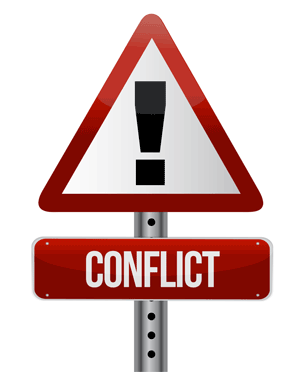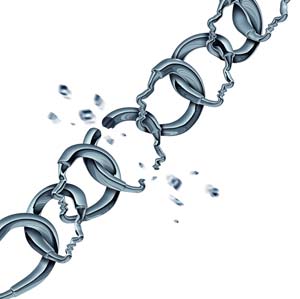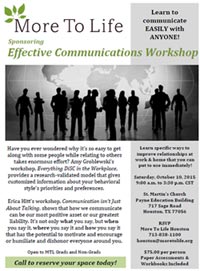areas of practice
Appreciation: The Importance Of Feeling Appreciated
 Thought for the day: “A person who feels appreciated, will always do more than expected”
Thought for the day: “A person who feels appreciated, will always do more than expected”
Let’s remember to notice and appreciate those who are there for us and those who have touched our lives in beautiful ways.
Let’s also remember the power that our attitude and positive energy have in motivating ourselves and others.
Enjoying the Present by Managing Problems
 A problem doesn’t mean life is negative or horrible. All people have problems to work through.
A problem doesn’t mean life is negative or horrible. All people have problems to work through.
To solve the problem, we first have to make sure the problem is ours, and not someone else’s. If it isn’t our problem, we need to set a boundary.
Then we seek the best solution. This may mean setting a goal, asking for help, or gathering more information, taking an action or letting go.
We can face and solve problems, knowing they will appear regularly. Avoiding and procrastinating dealing with a problem makes us more stressed. It often takes more energy to run from a problem rather than to face it. It can be a lot easier when we trust our ability to solve problems and not feel like we are so alone.
Do your best to face today’s unresolved issues and problems and do what you can. Don’t worry needlessly about tomorrow’s problems, because when they appear, we’ll have the resources necessary to solve them. We make the most of living in the present when we face and solve problems as they appear, and not worry needlessly on problems that haven’t happened.
How to Overcome Childhood Emotional Neglect
One of my clients sent this to me saying it was extremely helpful.
I found it interesting and thought some of you might like it and find it helpful as well.
It is a youtube on “Overcoming Childhood Emotional Neglect”. (About 10 minutes)
Hope your new year is going well!
Denise
When we grow up in an emotionally neglectful environment it can cause us to believe that our thoughts, feelings, and desires don’t matter. This can in turn cause us question anything we experience and struggle to trust how we feel. We can find it difficult to let people in, and constantly worry what others think about us.
Those who have suffered from emotional neglect often don’t even know it was happening, because this type of neglect isn’t something we can easily see. Many parents who were emotionally neglectful give their children every material thing they need, and from the outside look like amazing parents. But if their child needs any emotional support or encouragement from them, they are nowhere to be found.
HOW TO RECOVER:
1. Start noticing/tracking your feelings: Print out feelings charts and track them each day. It may be hard at first, so start with the easier ones (often tired, sad, and worried are easier to begin with). It’s normal for us to not know how we feel all the time, but give yourself the chance to listen to your body and acknowledge all that you may be feeling.
2. Try describing the feeling word you selected without using that exact word (ex. I am feeling energized, excited, and bubbly – when describing happy)
3. Begin noticing your needs: What are the things you need physically to survive? How about things you need emotionally? When do they come up? Take your time thinking about these, and even pretend that someone you love had those needs to. What would you think about them then?
4. Self-Care! I know I talk about this a lot, but when it comes to healing from CEN self-care is our way of nurturing and caring for ourselves. Are there things you wished your parent had done for you? Let’s make time to do those things for ourselves.
5. Accept help and support from others: It can be hard to let people in when we weren’t supported as a child, but we need other people in our lives who can help us through the tough times. Ensure these people are worth having around, and that they are trust worthy, and then slowly let them in.
6. Set healthy boundaries: This is SO IMPORTANT! It’s okay to say no! You don’t have to do anything that you don’t want to, and people will understand and respect you more because of it.
Addiction Recovery and Addiction Counseling

You don’t recover from an addiction by stopping using.
You recover by creating a new life where it is easier to not use.
If you don’t create a new life, Then all the factors that brought you to your addiction will eventually catch up with you again.
Why You Should Stop Being So Hard on Yourself
Self-criticism can take a toll on our minds and bodies. It’s time to ease up.
“We’re all our own worst critics.” Ever heard that one before?

Yes, it’s an obnoxious cliché, but it’s not just self-help fluff. Evolutionary psychologists have studied our natural “negativity bias,” which is that instinct in us all that makes negative experiences seem more significant than they really are.
In other words: We’ve evolved to give more weight to our flaws, mistakes and shortcomings than our successes.
“Self-criticism can take a toll on our minds and bodies,” said Dr. Richard Davidson, founder and director of the Center for Healthy Minds at the University of Wisconsin-Madison, where he also teaches psychology and psychiatry.
“It can lead to ruminative thoughts that interfere with our productivity, and it can impact our bodies by stimulating inflammatory mechanisms that lead to chronic illness and accelerate aging,” he said.
But that’s not the end of the story. There are ways around our negativity bias, and it is possible to turn self-criticism into opportunities for learning and personal growth. (Really!) But first, let’s talk about how we got here.
O.K., so, why are we so hard on ourselves?
For one, blame evolution.
“Our brains equip us with a mechanism to monitor our mind and our behavior,” Dr. Davidson said, so that when we make errors, we are able to notice the mistake. “In order to recover, we first must notice that a mistake has occurred,” he said.
Just noticing that we’ve deviated from our expectations or goals — whether that’s eating too much or not completing a daily to-do list — isn’t necessarily the same thing as degrading ourselves into a shame spiral. In some cases, like when our safety or moral integrity are on the line, it’s crucial that our brains tell us good from bad so that we learn the right lessons from our experiences.
But sometimes, assigning negative value to our experiences and behaviors can “ensnare” us, Dr. Davidson said, into cycles of unhelpful rumination — like when you lie in bed at night needlessly replaying an awkward interaction or repeatedly revisiting that minor typo. This is where we get into the harmful, counterproductive side of self-criticism.
And it’s that type of self-criticism that can have measurably destructive effects, including symptoms of depression, anxiety, substance abuse, negative self-image and, in a particularly vicious twist, decreased motivation and productivity, according to a study published in the Journal of Psychotherapy Integration. Another study, published in Personality and Social Psychology Bulletin, found that self-criticism leads people to becoming preoccupied with failure.
Basically, beating yourself up for finishing only three of the five items on your to-do list is going to make you less likely to finish those last two items — and yet we’re programmed to fall into that pattern.
That seems … conflicting. What should I do?
If this feels a bit like a Catch-22, that’s because it is: We’re evolutionarily predisposed to nitpick at our failings, yet doing so has the opposite of the intended effect.
The solution? It’s called self-compassion: the practice of being kind and understanding to ourselves when confronted with a personal flaw or failure, according to Dr. Kristin Neff, associate professor of psychology at the University of Texas at Austin.
“Research shows that the No. 1 barrier to self-compassion is fear of being complacent and losing your edge,” Dr. Neff said. “And all the research shows that’s not true. It’s just the opposite,” meaning that self-compassion can lead to greater achievement than self-criticism ever could.
In fact, several studies have shown that self-compassion supports motivation and positive change. In a 2016 study researchers found that “self-compassion led to greater personal improvement, in part, through heightened acceptance,” and that focusing on self-compassion “spurs positive adjustment in the face of regrets.”
This is, of course, easier said than done. But core to self-compassion is to avoid getting caught up in our mistakes and obsessing about them until we degrade ourselves, and rather strive to let go of them so we can move onto the next productive action from a place of acceptance and clarity, according to experts.
“When we get caught up in self-referential thinking — the type that happens with rumination, worry, guilt or self-judgment — it activates self-referential brain networks,” said the psychiatrist and neuroscientist Dr. Judson Brewer, director of research at the Center for Mindfulness and associate professor in medicine and psychiatry at University of Massachusetts Medical School.
“When we let go of that mental chatter and go easy on ourselves, these same brain regions quiet down,” he said.
Developing an approach of self-compassion and a willingness to let go starts with practice. So where and how to start?
3 steps to self-compassion
First: Make the choice that you’ll at least try a new approach to thinking about yourself. Commit to treating yourself more kindly — call it letting go of self-judgment, going easier on yourself, practicing self-compassion or whatever resonates most.
To strengthen the muscle, Dr. Brewer suggests “any type of practice that helps us stay in the moment and notice what it feels like to get caught up. See how painful that is compared to being kind to ourselves.”
One of the most portable and evidence-based practices for noticing our thoughts and learning to let them go is meditation. Try mindfulness meditation, which involves anchoring your attention on the breath as a tool to stay present without getting lost in judgments, stories and assumptions.
You can also interrupt the spiral of negative self-talk by focusing your energy on something external that you care about, which can help you establish perspective and a sense of meaning beyond yourself.
“If you can do things to get yourself out of your own head, like going out and volunteering or doing something nice for a family member, these things can help lift the negative voices that are going on in your head,” said Emily Esfahani Smith, author of “The Power of Meaning: Crafting a Life That Matters.”
Second: The second step to self-compassion is to meet your criticism with kindness. If your inner critic says, “You’re lazy and worthless,” respond with a reminder: “You’re doing your best” or “We all make mistakes.”
Third: But it’s step three, according to Dr. Brewer, that is most important if you want to make the shift sustainable in the long term: Make a deliberate, conscious effort to recognize the difference between how you feel when caught up in self-criticism, and how you feel when you can let go of it.
“That’s where you start to hack the reward-based learning system,” Dr. Brewer said.
A part of our brains called the orbitofrontal cortex is, according to Dr. Brewer, always looking for the “BBO — the bigger better offer.”
“It compares X vs. Y,” he said, “and if Y is more pleasurable or less painful, it will learn to go with Y.”
Think about it this way: How much better might it feel to take a breath after making a mistake, rather than berating ourselves?
“All you have to do is think of going to a friend,” Dr. Neff said. “If you said, ‘I’m feeling fat and lazy and I’m not succeeding at my job,’ and your friend said, ‘Yeah, you’re a loser. Just give up now. You’re disgusting,’ how motivating would that be?”
This is the linchpin of being kinder to ourselves: Practice what it feels like to treat yourself as you might treat a friend. In order to trade in self-abuse for self-compassion, it has to be a regular habit.
So the next time you’re on the verge of falling into a shame spiral, think of how you’d pull your friend back from falling in, and turn that effort inward. If it feels funny the first time, give it second, third and fourth tries.
And if you forget on the fifth, remember: Four tries is a lot better than zero.
Original Article: https://mobile.nytimes.com/2018/05/22/smarter-living/why-you-should-stop-being-so-hard-on-yourself.html
Five Quick and Efficient Tips for Managing Anger
 Before you let anger get the best of you, when you feel anger beginning to escalate, visualize a stop sign similar to one you would see on the street while driving. Take some deep breaths and imaging exhaling the anger out of your body to gain immediate control or yourself. Thought-stopping can short-circuit anger. The less angry you are, the less angry you will become.
Before you let anger get the best of you, when you feel anger beginning to escalate, visualize a stop sign similar to one you would see on the street while driving. Take some deep breaths and imaging exhaling the anger out of your body to gain immediate control or yourself. Thought-stopping can short-circuit anger. The less angry you are, the less angry you will become.- Get beneath the anger. Anger is often a secondary emotion to the primary feelings of hurt, fear, or shame. Get to the source of your anger and put it into constructive action. (A therapist can help)
- Become an expert in detecting the early warning signs of anger. Stress, lack of sleep, hunger, loneliness, too much stimulation, multi-tasking, lack of affection- all can trigger anger. Track your signs and develop a proactive plan for self-care to prevent the build-up.
- Take responsibility for your own anger regardless of what your partner does. As long as you are blaming, you are stuck in anger.
- Get support. If your anger feels out of control or like it’s getting the best of you or your relationship, get help. Coaches, therapists, and spiritual leaders can be of great assistance in freeing you from this powerful emotion.
Growing Apart is tearing us Apart
Few Couples grow apart intentionally or consciously. In most cases, it sneaks up on you like a thief in the night. Growing apart could easily be the greatest threat to relationships today.
Work obligations extend into personal hours. Commuting takes time away. Children/family commitments absorb all the time you have if you let them.  Add in time for religious activities, home repair, not to mention keeping up with the cooking, cleaning, laundry, bill-paying, personal hygiene, shopping and the list goes on….not to mention sleep, recreation, hobbies. Carving out time for the two of you can feel like one more obligation to fulfill.
Add in time for religious activities, home repair, not to mention keeping up with the cooking, cleaning, laundry, bill-paying, personal hygiene, shopping and the list goes on….not to mention sleep, recreation, hobbies. Carving out time for the two of you can feel like one more obligation to fulfill.
In some ways, it’s easier to ignore a good relationship because it doesn’t demand your attention. Unless someone is complaining, it’s easy to take each other for granted. In the process of being responsible you become irresponsible to the relationship.
Partners grow apart by: following their individual interests. Boredom, having no effective way of managing differences and through lack of connection.
Here are some common reasons why a person might choose not to connect.
- Lack of feeling able to talk and be heard. I can’t talk to you because our conversations always end in a fight. You interrupt, correct, criticize and always have to be right. I’ve given up.
- Lack of affection. I can’t even remember the last time you showed me any physical affection. When I reach out to you, I get the cold shoulder or I’m accused of only wanting sex.
- Attention to Needs: How can you expect me to be sensitive to your needs when you have ignored mine over and over again?
- You’ve taken away the one activity that used to make us feel the most connected.
- Lack of fun. You won’t join me in my idea of fun, and yet you don’t have suggestions for other things to do. You also don’t see how much I have to do before I can have fun and you don’t help me.
- Joint Projects. I know you have a “to-do” list for me, and if you were running my life I would spend all my spare time completing tasks. While I think some of this is important (mainly because you like it), that’s not how I want to spend my spare time.
Transform Growing Apart
Growing apart can change. The way to fix this, can be fun and highly rewarding.
 Think of reconnecting the same way you save money: pay yourself first. Carve out time for your relationship and spent that time together even if it means cheating other aspects of your life. Put a date night on the calendar and attach a serious penalty for breaking it. Don’t wait until you have time for each other: take time for each other and make other things wait!
Think of reconnecting the same way you save money: pay yourself first. Carve out time for your relationship and spent that time together even if it means cheating other aspects of your life. Put a date night on the calendar and attach a serious penalty for breaking it. Don’t wait until you have time for each other: take time for each other and make other things wait!
- Make a list of activities you do together that leave you in a better place with one another. If you don’t know of any, make it a goal to discover the activities as a team.
- Get interested in each other’s interests.
- Affection can go a long way towards reconnecting. Make a move.
- Focus on solutions instead of problems. Brainstorm ways to get reconnected again.
- Learn something new together.
- Make goals for your relationship and work on fulfilling them together.
If the two of you have grown apart to the point of being strangers, you may have to fight your way back – and one of you may have to carry the burden alone for a while. It’s very powerful when even one person becomes energized on behalf of the relationship, especially in the face of opposition or apathy from the other partner.
Be willing to make a drastic change in your lifestyle for the sake of your relationship. Many couples become trapped in the life they have created.
Have compassion, show care and remember that love is an action, not just a feeling. If you still love each other, make your behavior and commitment to the relationship be a reflection of that love.
***From “You’re Tearing Us Apart- Twenty Ways We Wreck Our Relationships and Strategies to Repair Them” by Pat love, Eva Berlander and Kathleen McFadden and paraphrased by Denise O’Doherty.
The Purpose Behind Controlling Behavior
Communication and negotiation are two main factors in a good relationship. This looks like two adults bringing their best to each other with mutual respect and consideration. No one wants to be controlled or bullied in a relationship. This article by Pat Love from her book “You’re Tearing Us Apart” makes us understand what is behind a “controller” and what to do about it.
“Your Controlling Behavior Is Tearing Us Apart”
“I feel like I’m living in a vice. I can’t move right or left, forward or backward, without you getting upset or somehow correcting me. I’ve avoided this subject for a long time because I don’t want your anger, your criticism, or your silent treatment, but I’m worn out and worried that it’s getting worse.
Living with you is not fun anymore: in fact it’s like walking on eggshells. I find myself giving up more and more of my life because of your “my way or the highway” attitude.
You don’t trust me or how I do things. Or maybe you just think I’m stupid. You act like your opinion is always the right one and none doesn’t matter. I’ve given up so many things that are important to me just to keep peace with you – but it’s never enough.
If this sound like an exaggeration, please think about it. Think about how many of my friends and family you don’t like and don’t want me spending to me with: how many of my activities I’ve cut short or cut out because you don’t approve. And you always seem to be upset when I have fun without you.
I know you are smart. I know you have good ideas, and most of the time I know you love me, but your need to control my behavior is suffocating me and snuffing the life out of our relationship.
The Purpose Behind Controlling Behavior
The most common reason why we try to control another person’s behavior is to manage our own anxiety or insecurity. We feel safer and less vulnerable when everything happens as expected. This fact easily goes unnoticed because it’s largely unconscious. What others see as controlling is often seen as doing the right thing to the person in control, or at least doing it in a better way.
Those blamed for being controlling are often confused by this accusation. They see what they believe to be the best course of action and are incredulous when others don’t see it the same way. Motivated by the desire to help, partners who are controlling come on strong with suggestions and work hard to gain compliance.
 Controlling behavior also can be compensation for a time or situation when the partner had no control such as growing up, a stressful job, or a former relationship. Living without personal control can increase the motivation to seize control whenever possible.
Controlling behavior also can be compensation for a time or situation when the partner had no control such as growing up, a stressful job, or a former relationship. Living without personal control can increase the motivation to seize control whenever possible.
The most severe forms of control are motivated by emotional dysregulation, which is the inability to manage our own feelings. In an attempt to avoid the fear of abandonment or the shame of inadequacy, the controlling partner resorts to extreme emotions such as anger, rage, threats, and even emotional or physical abuse.
The primary difference in modern twenty-first century couples and those in the past is the level of equality, equity, freedom and autonomy. Relationships thrive when each individual has the liberty to develop and grow as a person and a partner. This evolving process generates energy that keeps both partners interested and excited about a future together.
When one partner tries to control or limit the other’s choices, excitement is replaced by resentment, which is the number one cause of growing apart, and growing apart is cited as the most common reason for divorce and separation.
Once resentment enters a relationship, excitement fades, passion wanes, and anger is never far behind. Good feelings and effective communication go out the window, while criticism, defensiveness, and withdrawal seep in. When negative exchanges begin to outweigh the positives, the relationship is in serious trouble of tearing apart.
Transforming Controlling Behavior
Sometimes controlling behavior is simply a habit. The best way to break a habit is to form a new one. Developing a “no advice” policy might be just the right approach to replace the old pattern.
 As soon as you catch yourself trying to control your partner, stop and apologize: ”There, I did it again, I’m sorry”. It’s also a good idea to tell them what you are sorry for so they know you “got it”.
As soon as you catch yourself trying to control your partner, stop and apologize: ”There, I did it again, I’m sorry”. It’s also a good idea to tell them what you are sorry for so they know you “got it”.
Apology goes a long way if you are sincere.
Instead of directing, or trying to influence your partner to what you want, simply say “oh” (to de-escalate you and show a noncommittal neutral stance) or “tell me more about how you think about that”. You might discover a great deal of wisdom in your partner’s perspective- especially if you’re more willing to be loving than to be right.
Most controlling behavior is fueled by anxiety or fear: therefore, you must learn to manage those feeling within yourself instead of trying to manage your partner’s behavior. Emotional regulation gives you control of what happens in your mind and your own behavior. Trying to control your partner’s life will wear you out and tear down your relationships. If the old pattern of controlling starts up, call a time-out. You can’t have an argument over control when one person refuses to participate.
If you’re the partner feeling controlled, then it’s your responsibility to speak up! Silence enables the behavior to continue. You might be more aware of the controlling behavior that your partner. Work together to agree upon a kind way to signal when the pattern re-emerges. Develop a redirect strategy to replace the old habits For example: when I life my hand in the stop position, I’d like you to be quiet and let me finish what I am doing.”
If you do not feel safe or competent to talk with your partner about the issue of control, take this as a sign to seek professional help.
Effective Communications Workshop
Hello All!
I highly recommend this Communications Workshop for anyone interested in having better communication skills, to learn best ways to be heard when you speak, to deepen your listening skills, and to create more satisfaction in your relationships and intimacy with others.
Best Wishes!
Denise
Effective Communications Workshop Details
Have you ever wondered why it’s so easy to get along with some people while relating to others takes enormous effort? Amy Groblewski’s workshop, Everything DiSC in the Workplace, provides a research-validated model that gives customized information about your behavioral style’s priorities and preferences.
Erica Hitt’s workshop, Communication isn’t Just About Talking, shows that how we communicate can be our most positive asset or our greatest liability. It’s not only what you say, but when you say it, where you say it and how you say it that has the potential to motivate and encourage or humiliate and dishonor everyone around you.
Call to reserve your space today!
Saturday, October 10, 2015
9:00 a.m. to 3:30 p.m. CST
St. Martin’s Church
Payne Education Building
717 Sage Road
Houston, TX 77056 | Map
RSVP with More To Life Houston
713-838-1100
houston@moretolife.org
$75.00 per person
Paper Assessments & Workbooks Included

